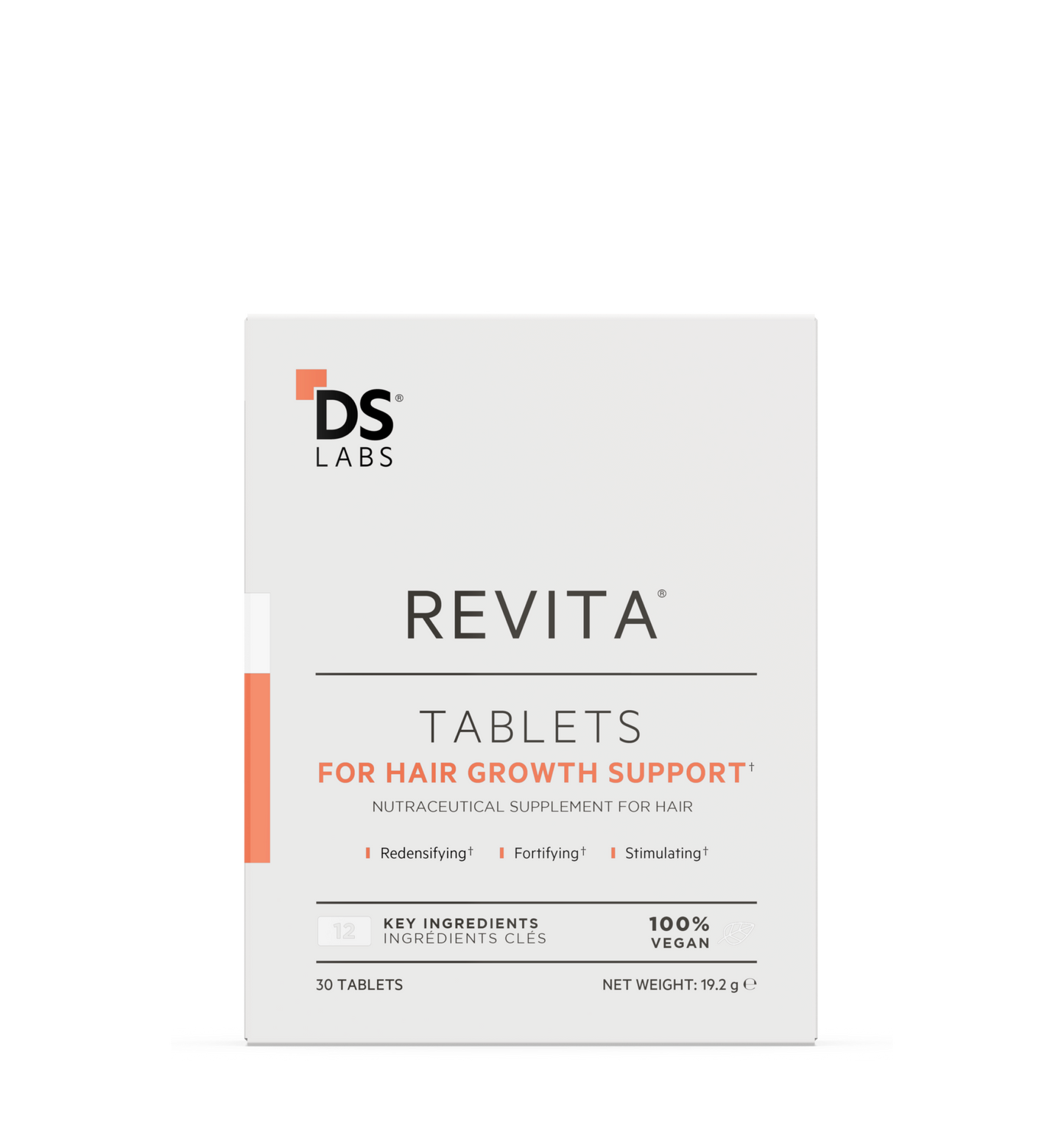Hair loss affects approximately 35 million men and 21 million women. Let that sink in.
Products and treatments can help facilitate hair growth, but if you’re looking for something that will offer targeted benefits while ensuring overall hair health, vitamin C should be your holy grail.
What Is Vitamin C and How Does It Affect Hair Growth?
Vitamin C (ascorbic acid) is a water-soluble vitamin. It can fight dandruff, stop hair loss, and prevent premature graying. In addition, vitamin C can prevent hair from growing thin, weak, and brittle, making it an essential vitamin for your daily routine.
How does it work?
This potent antioxidant can promote collagen production, an important protein in our hair’s structure. It can also help your body build keratin (another essential protein found in hair) to facilitate hair growth.
Vitamin C is beneficial for all hair types and textures, but it’s best for those with color-treated or damaged strands.
Iron Absorption and Your Hair
It can also help the body absorb iron, a mineral that ensures our locks are strong and healthy. Since iron deficiency can be one of the reasons for hair loss and thinning, particularly in menstruating women who lose iron through blood loss, the inclusion of vitamin C in your routine will support scalp and hair health as well as overall beauty and health.
It can also fight bacteria on the scalp, which can help get rid of debris at the follicles, ward off dandruff, and encourage the growth of new healthy hair.
Neutralize Free-Radical Damage
Our body converts the food we consume into glucose to produce energy through cellular respiration. When that happens, free radicals — which can make our hair thin, weak, and brittle — are naturally formed.
Having an adequate supply of vitamin C can neutralize the effect of free-radical damage by protecting hair from oxidative stress. You want to prevent oxidative stress because it can negatively affect hair growth and cause your strands to age more quickly.
How Can You Use Vitamin C for Hair Growth?
Your hair is directly affected by the things you put in your body. If you have dry hair and split ends, there’s a good chance you have a vitamin C deficiency. To avoid these hair issues, get enough vitamin C and you’ll see a positive change in your hair.
There are two ways to ensure you have enough of this vitamin:
Eat a Balanced Diet
According to the 2018 article published in the National Library of Medicine, “Humans are naturally deficient in an enzyme called l-gluconolactone oxidase that is required for vitamin C synthesis, and should therefore take vitamin C through their diet.”
So, eat a balanced, well-rounded diet full of good-for-you fruits and veggies. It’s the best way to ensure that your body is getting the levels of vitamin C it needs for hair growth. This will trigger a boost in collagen production, which can strengthen your hair and support its growth.
Here are some good options to start with:
- Citrus fruits (oranges, kiwi, grapefruit, bell peppers)
- Cruciferous vegetables (broccoli, cabbage, cauliflower)
- Potatoes
- Tomatoes
- Strawberries
These vegan options have high concentrations of vitamin C and contain additional nutrients that facilitate overall hair health.
Use Supplements
Eating a well-balanced diet can be enriching, but it can be difficult to ingest the same food every day. Some items may be seasonal, and it can be difficult to prep food every day.
Supplements can be a convenient way to get the vitamin C dose that your body and hair need.
Topical Treatments
A full, well-balanced diet and supplements can be effective in tackling your vitamin C deficiency, but if you’re looking for speedy results, topical treatments are your best friend.
Topical treatments infused with vitamin C can be applied to your strands as serums or moisturizers. Since they’ve been designed to help with hair health, you’ll notice their effects more quickly.
You can use these treatments twice or thrice a week, but make sure to read the instructions on the product to avoid scalp or hair irritation. It would be wise to do a patch test first on the inside of your arm to avoid any adverse reactions.
Worried About Your Hair Health? Talk to an Expert
Hair loss and thinning may be universal problems, but the reasons for it and how they affect us can be very different.
If you’re struggling with hair loss, see a dermatologist. A dermatologist will take your symptoms into account and will determine the cause of your hair concerns. They can also refer you to other doctors if necessary.
During your consultation, you can ask about a possible vitamin C deficiency and other factors that may be slowing down your hair growth. They can prescribe lifestyle changes, supplements, and treatments that promote your hair’s regrowth and health.












